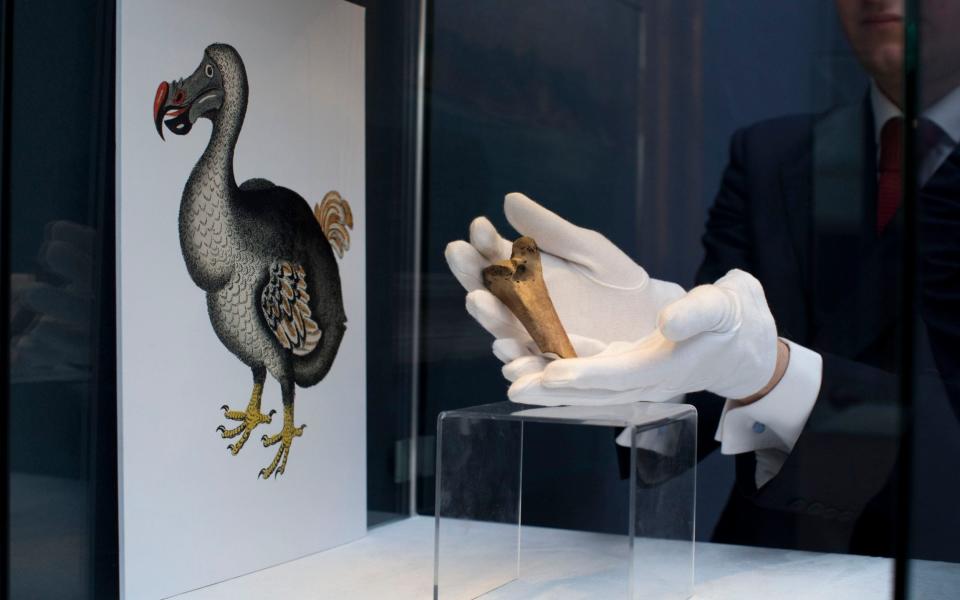Scientists pledge to 'de-extinct' the dodo

Scientists have attempted to bring the dodo back to life after it went extinct 361 years ago.
Researchers at Colossal Biosciences, a US gene-editing firm, have pledged to “de-extinct” the flightless bird in a new $150 million project.
Pioneering gene-editing techniques will allow scientists to mine the dodo genome for traits which they can effectively reassemble within the body of a living relative such as a pigeon, The Guardian reported.
George Church, a Harvard scientist who founded the company in 2021 with entrepreneur Ben Lamm, hopes to reintroduce the species into the wild.
Beth Shapiro, a board member on Colossal’s Scientific Advisory Board and lead paleo geneticist on the project, said: “The Dodo is a prime example of a species that became extinct because we - people - made it impossible for them to survive in their native habitat.”

Dr Shapiro added: “Having focused on genetic advancements in ancient DNA for my entire career and as the first to fully sequence the Dodo’s genome, I am thrilled to collaborate with Colossal and the people of Mauritius on the de-extinction and eventual re-wilding of the Dodo.
“I particularly look forward to furthering genetic rescue tools focused on birds and avian conservation.”
The dodo, a three-feet tall bird weighing up to 39lb, used to live on the Indian Ocean island of Mauritius before it was driven to extinction.
Colossal Biosciences currently has 40 scientists working on a separate project to revive the woolly mammoth, which it describes as “the cuddly version of a velociraptor”.
Scientists plan to fuse the DNA of mammoths that were frozen in ice for thousands of years with that of modern Asian elephants.

Prof Ewan Birney, deputy director of the European Molecular Biology Laboratory, who was not involved with Colossal’s work, told the Guardian it would be “very very challenging” at a technical level to recreate the dodo genome.
“There is no doubt this is an iconic bird. I’ve no idea whether the mechanics of this will work as they claim, but the question is not just can you do this but should you do it,” he said.
“There are people who think that because you can do something you should, but I’m not sure what purpose it serves, and whether this is really the best allocation of resources. We should be saving the species that we have before they go extinct.”


